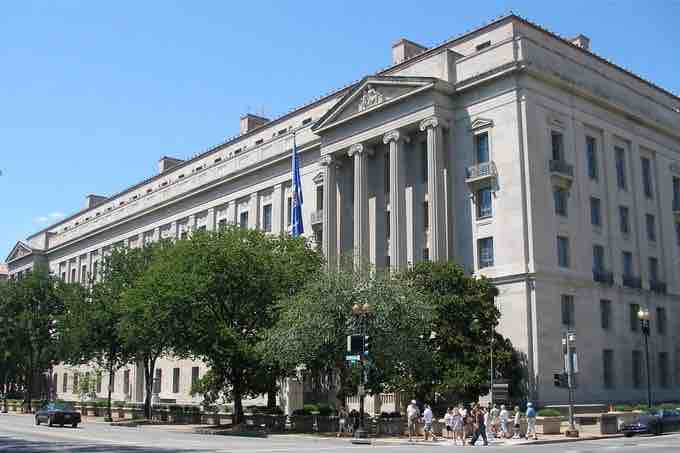A regulation is a legal provision with many possible functions. It can create or limit a right; it can create or limit a duty; or it can allocate a responsibility. Regulations take many forms, including legal restrictions from a government authority, contractual obligations, industry self-regulations, social regulations, co-regulations, and market regulations.
State, or governmental, regulation attempts to produce outcomes which might not otherwise occur. Common examples of this type of regulation include laws that control prices, wages, market entries, development approvals, pollution effects, employment for certain people in certain industries, standards of production for certain goods, the military forces, and services.
The study of formal (legal and/or official) and informal (extra-legal and/or unofficial) regulation is one of the central concerns of the sociology of law. Scholars in this field are particularly interested in exploring the degree to which formal and legal regulation actually changes social behavior.
Deregulation, Regulatory Reform, and Liberalization
According to the Competitive Enterprise Institute, government regulation in the United States costs the economy approximately $1.75 trillion per year, a number that exceeds the combined total of all corporate pretax profits. Because of this, programs exist that review regulatory initiatives in order to minimize and simplify regulations, and to make them more cost-effective. Such efforts, given impetus by the Regulatory Flexibility Act of 1980 in the United States, are embodied in the United States Office of Management and Budget's Office of Information and Regulatory Affairs. Economists also occasionally develop regulation innovations, such as emissions trading.

U.S. Department of Justice
The Department of Justice is home to the U.S. anti-trust enforcers.
U.S. Antitrust Law
U.S. antitrust law is a body of law that prohibits anti-competitive behavior (monopolization) and unfair business practices. Intended to encourage competition in the marketplace, these laws make it illegal for businesses to employ practices that hurt other businesses or consumers, or that generally violate standards of ethical behavior. Government agencies known as competition regulators, along with private litigants, apply the antitrust and consumer protection laws in hopes of preventing market failure. Originally, these types of laws emerged in the U.S. to combat "corporate trusts," which were big businesses. Other countries use the term "competition law" for this action. Many countries, including most of the Western world, have antitrust laws of some form. For example, the European Union has provisions under the Treaty of Rome to maintain fair competition, as does Australia under its Trade Practices Act of 1974.
Antitrust Rationale
Antitrust laws prohibit monopolization, attempted monopolization, agreements that restrain trade, anticompetitive mergers, and, in some circumstances, price discrimination in the sale of commodities.
Monopolization, or attempts to monopolize, are offenses that an individual firm may commit. Typically, this behavior involves a firm using unreasonable, unlawful, and exclusionary practices that are intended to secure, for that firm, control of a market. Large companies with huge cash reserves and large lines of credit can stifle competition by engaging in predatory pricing, in which they intentionally sell their products and services at a loss for a time, in order to force smaller competitors out of business. Afterwards, with no competition, these companies are free to consolidate control of an industry and charge whatever prices they desire.
A number of barriers make it difficult for new competitors to enter a market, including the fact that entry requires a large upfront investment, specific investments in infrastructure, and exclusive arrangements with distributors, customers and wholesalers. Even if competitors do shoulder these costs, monopolies will have ample warning and time in which to either buy out the competitor, engage in its own research, or return to predatory pricing long enough to eliminate the upstart business.
Federal Antitrust Actions
The federal government, via the Antitrust Division of the United States Department of Justice, and the Federal Trade Commission, can bring civil lawsuits enforcing the laws. Famous examples of these lawsuits include the government's break-up of AT&T's local telephone service monopoly in the early 1980s, and governmental actions against Microsoft in the late 1990s.
The federal government also reviews potential mergers to prevent market concentration. As a result of the Hart-Scott-Rodino Antitrust Improvements Act, larger companies attempting to merge must first notify the Federal Trade Commission and the Department of Justice's Antitrust Division prior to consummating a merger. These agencies then review the proposed merger by defining what the market is, and then determining the market concentration using the Herfindahl-Hirschman Index and each company's market share. The government is hesitant to allow a company to develop market power, because if unchecked, such power can lead to monopoly behavior.
Exemptions to Antitrust Laws
Several types of organizations are exempt from federal antitrust laws, including labor unions, agricultural cooperatives, and banks. Mergers and joint agreements of professional football, hockey, baseball, and basketball leagues are exempt. Newspapers run by joint operating agreements are also allowed limited antitrust immunity under the Newspaper Preservation Act of 1970.